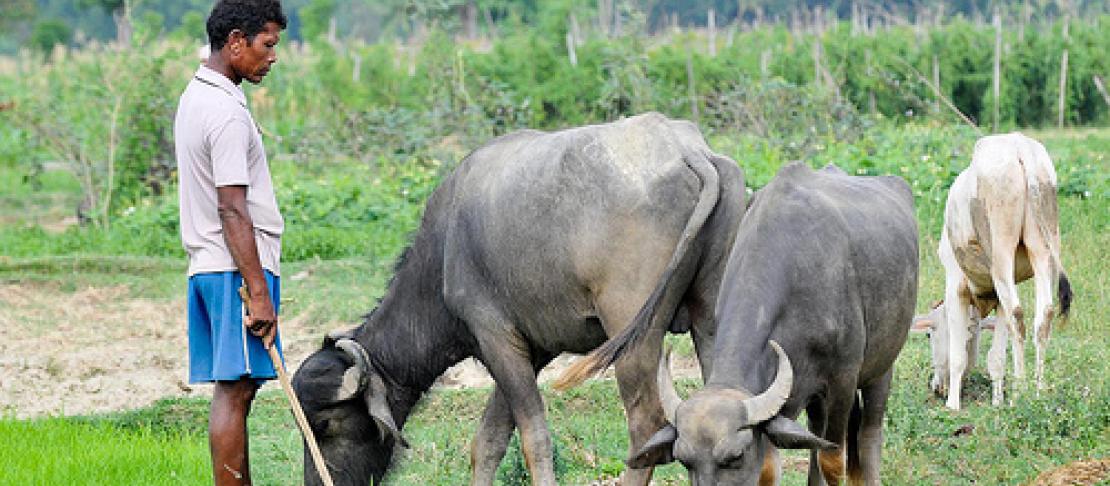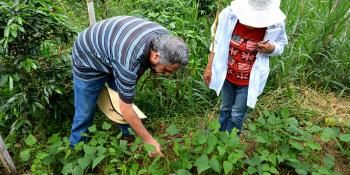Integrating sciences to find tools that support adaptation

by Chase Sova
The CGIAR Research Program on Climate Change, Agriculture and Food Security (CCAFS) works in partnerships as a way to create impact and change. One of these partnerships include working with Oxford University and their researchers. Here, CCAFS works with a team, called the Systemic Integrated Adaptation (SIA) which consists of four Oxford PhD readers lead by research associate Ariella Helfgott of Oxford/Adelaide/Wageningen universities. The team is made up of researchers drawing from experience living and working across sectors in agriculture, conservation, finance and development in Asia, Africa, North and Latin America and Australia.
SIA operates within CCAFS Theme 1 Adaptation to Progressive Climate Change and is housed within Oxford’s Environmental Change Institute (ECI), School of Geography and the Environment (SoGE). SIA aims to produce a truly integrated research program bringing together students with backgrounds in sociology (social differentiation), global environmental change, economics and finance, and politics --SIA’s four lenses. The team is exploring topics relevant to multi-level complex adaptive systems charged with improving food security, while reducing environmental degradation.
The researchers welcomed guests from around the world last week for a pluri-disciplinary dialogue on “Systemic Integrated Adaptation”, connecting global themes in the local context of the Terai Plains of Nepal. Representatives from Wageningen University, Emory, and Columbia University joined with actors from Nepal’s research and civil society and Oxford subject-matter-specialists to discuss with the CCAFS team on the preliminary research findings, and contribute to the group’s vision and direction moving forward.
The workshop dialogues in September this year, were held following the SIA team’s return from Nepal, the first of three field programs the group will undertake. The team spent nearly four months in the breadbasket of Nepal’s southwest Terai region and in the capital, Kathmandu, interacting with stakeholders from the household to central government levels.
In addition to lens-specific results and considerations that were presented during the dialogues, the team shared their experiences in piloting the use of CCAFS Farms of the Future climate analogues tool to be used for embedded learning through farmer exchanges. Reports, videos and other outputs from the team are in the pipeline. For the moment, however, a brief summary of the team’s presentation can be found here (PFD).
Combing cutting edge field data collection methods with participatory processes is helping to capture local experiences of the impact of climatic change and variability on cropping patterns, and what measures farmers are taking to adapt their livelihoods.
SIA is asking the question of what conceptual, methodological and practical tools and frameworks are required to support adaptation policy development, which represents the interests of multiple interest groups (both human and non-human species), makes explicit tradeoffs in policy decisions, accounts for long-term resilience, addresses and challenges existing downfalls in the current development trajectories, and builds on the existing assets extant at the community level.
In the next few months, SIA will be taking lessons from this experience in Nepal and feeding that back into methodologies through an iterative approach in preparation for fieldwork in the next field site of West Africa in 2013.
This blog post was prepared by Chase Sova, one of the researchers within the SIA project. To get more updates from our research teams follow us on Facebook, and Twitter @Cgiarclimate


